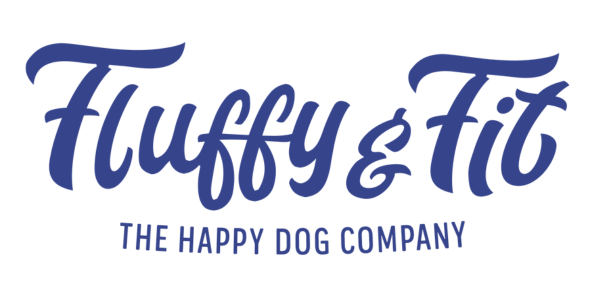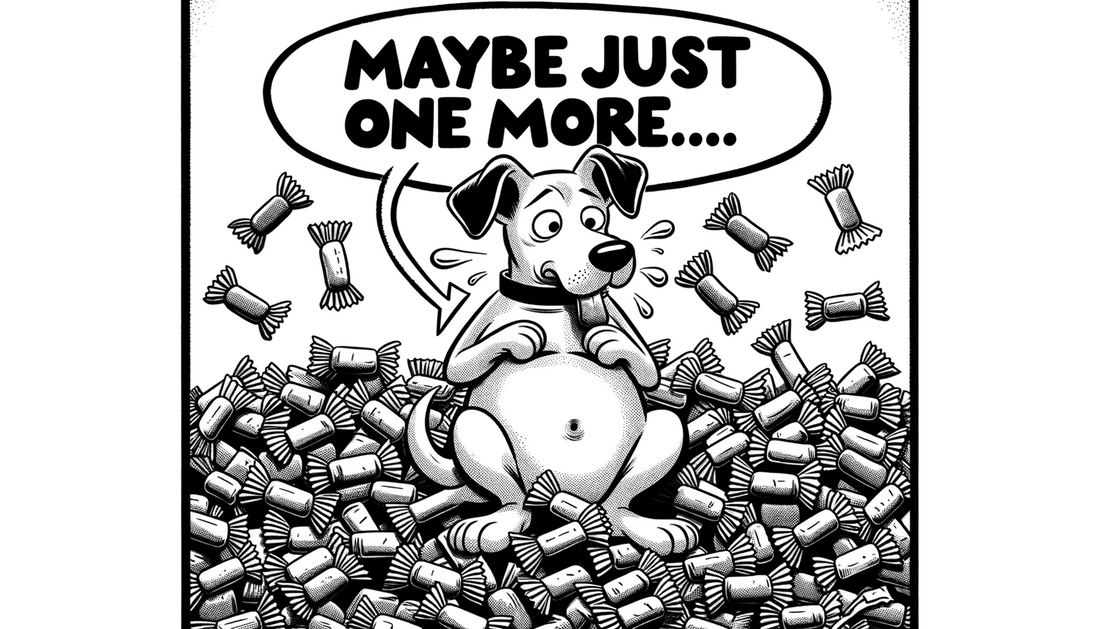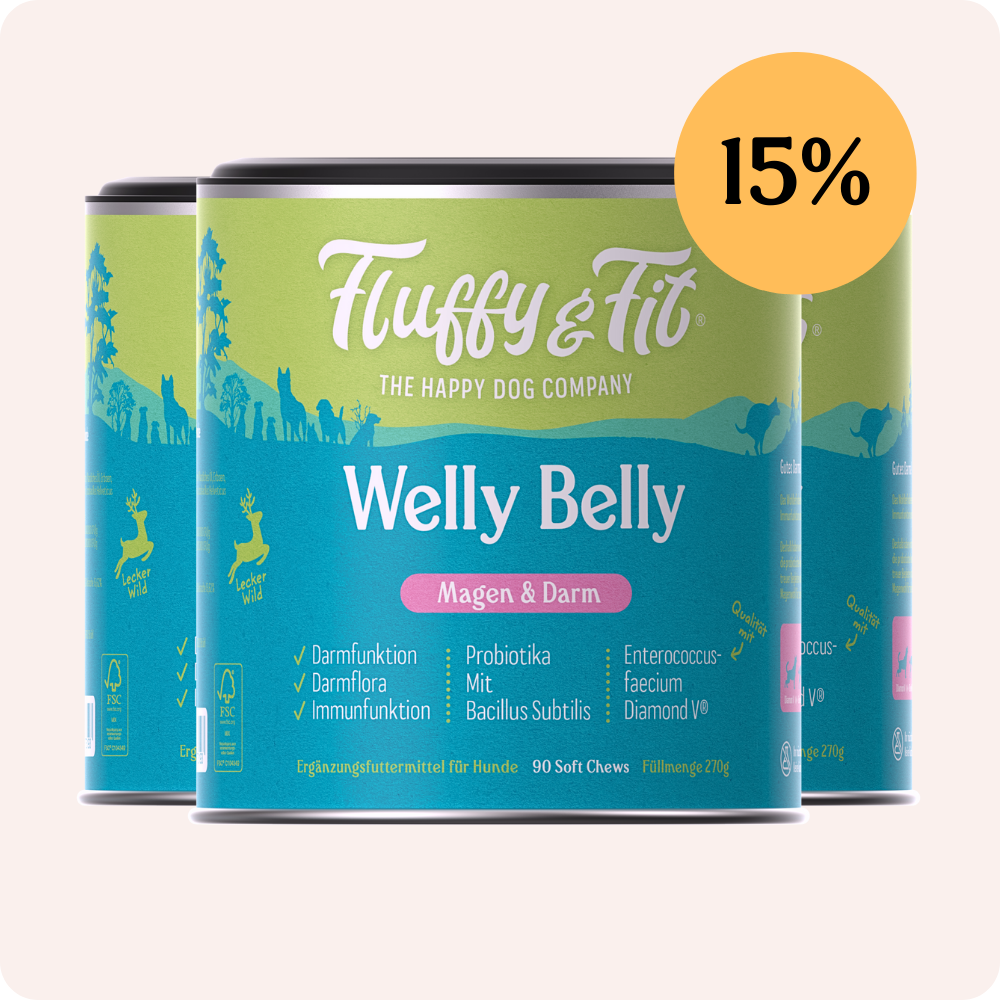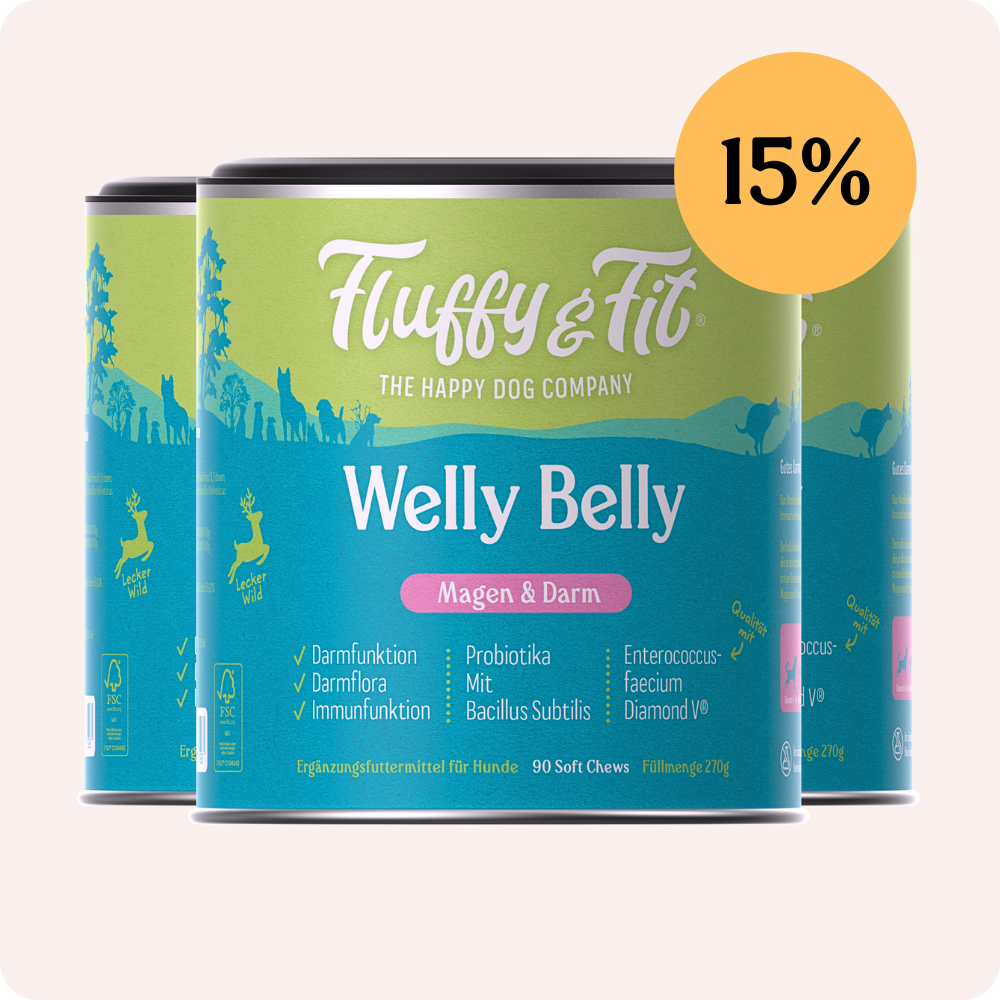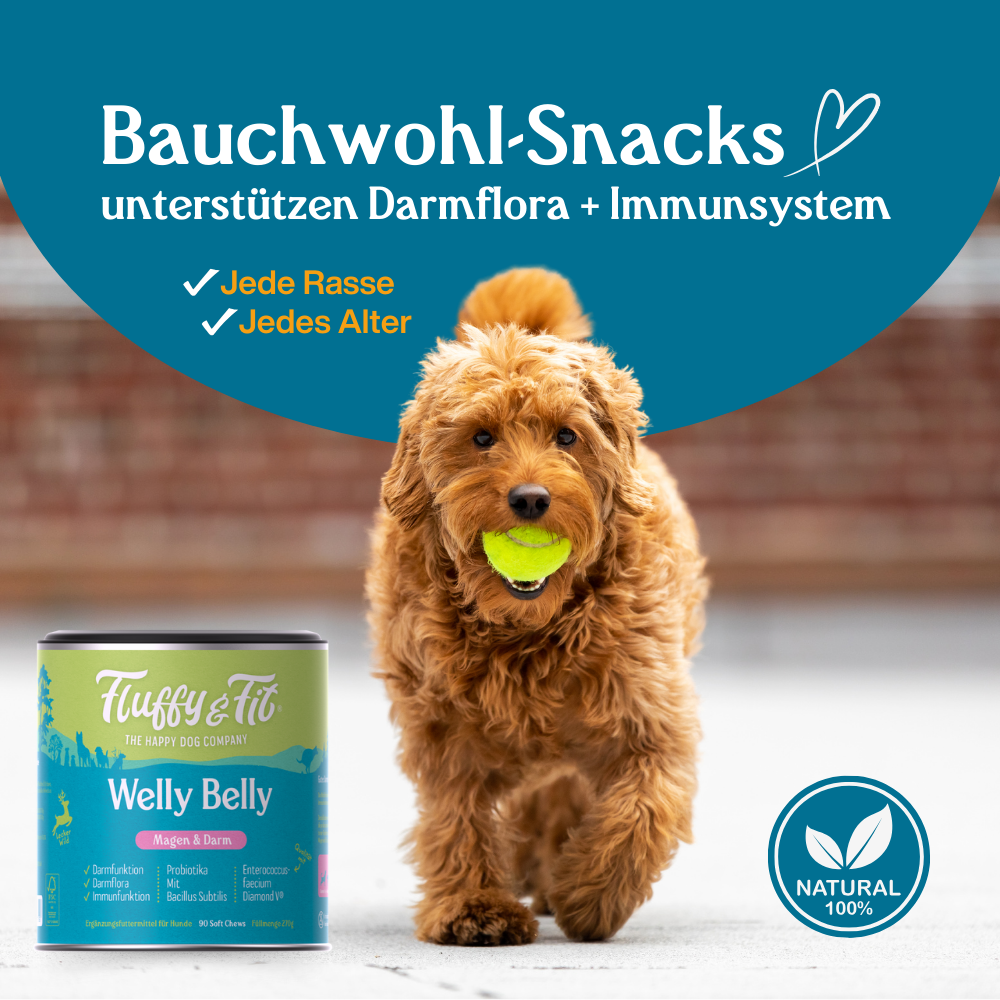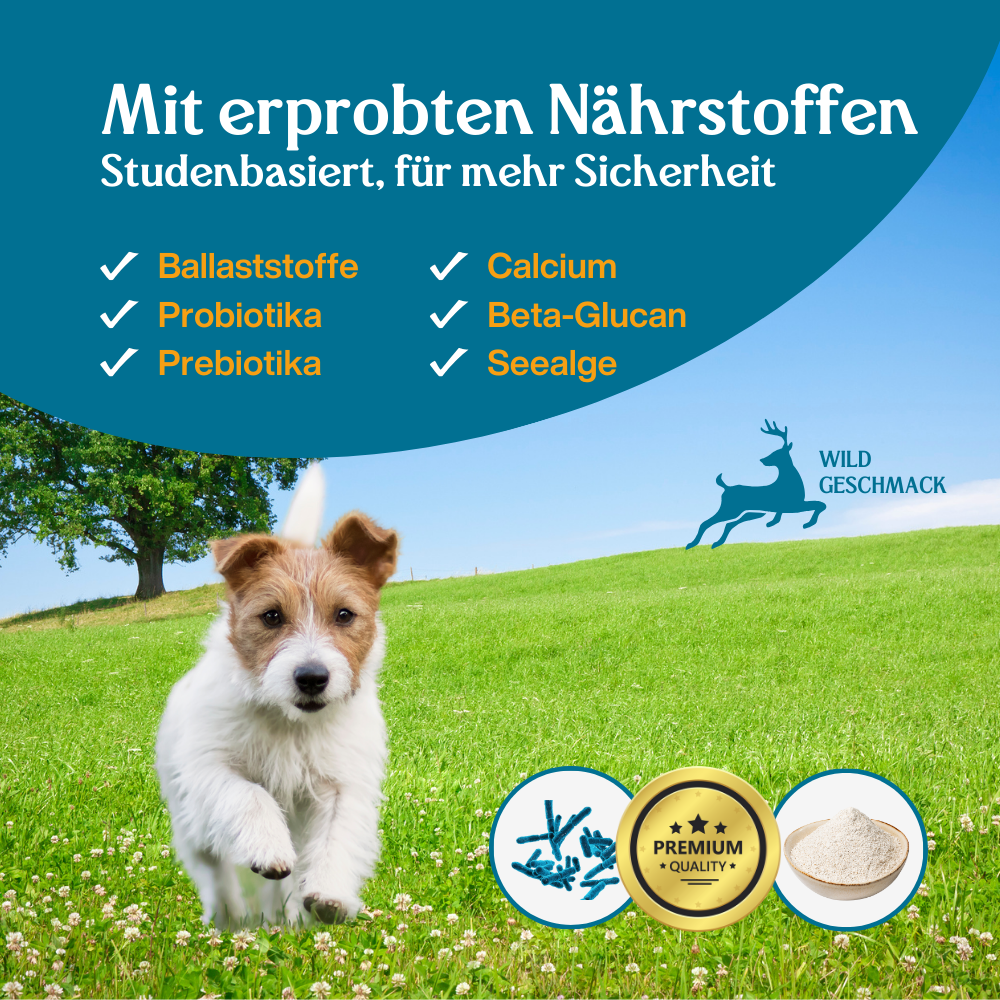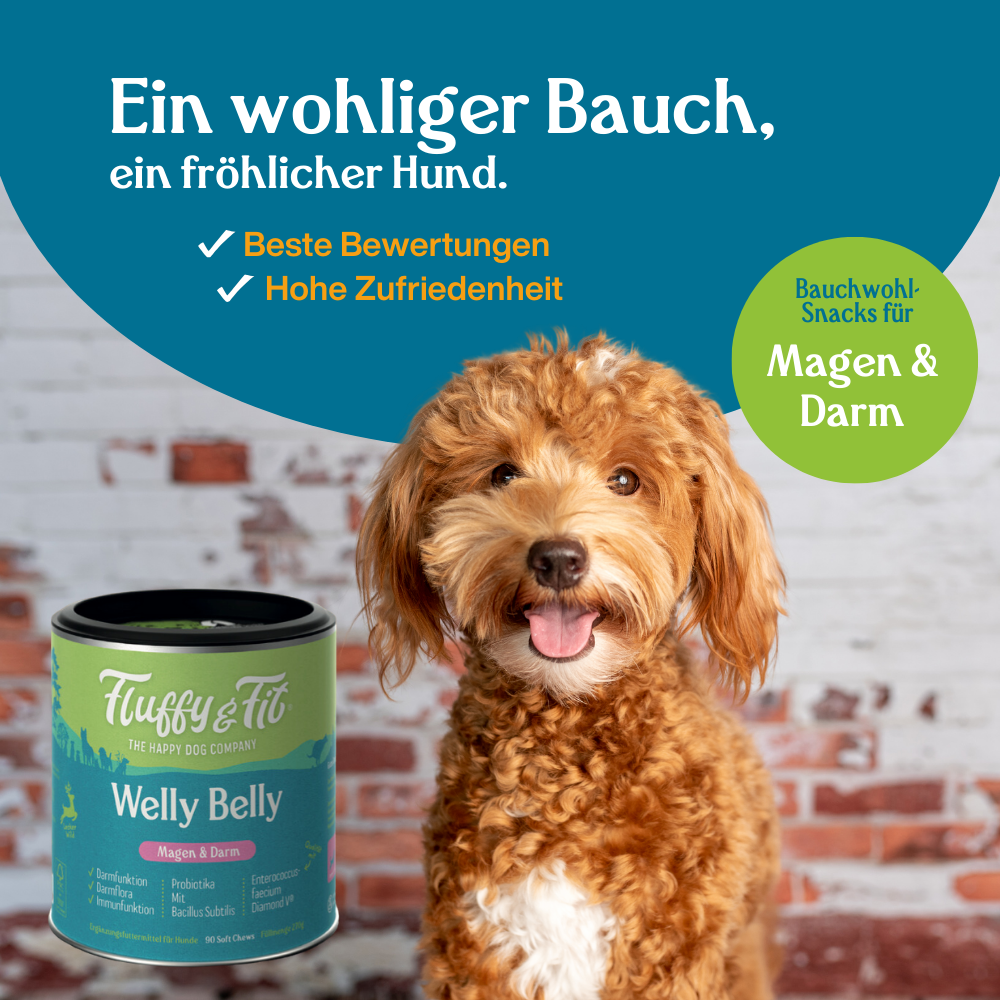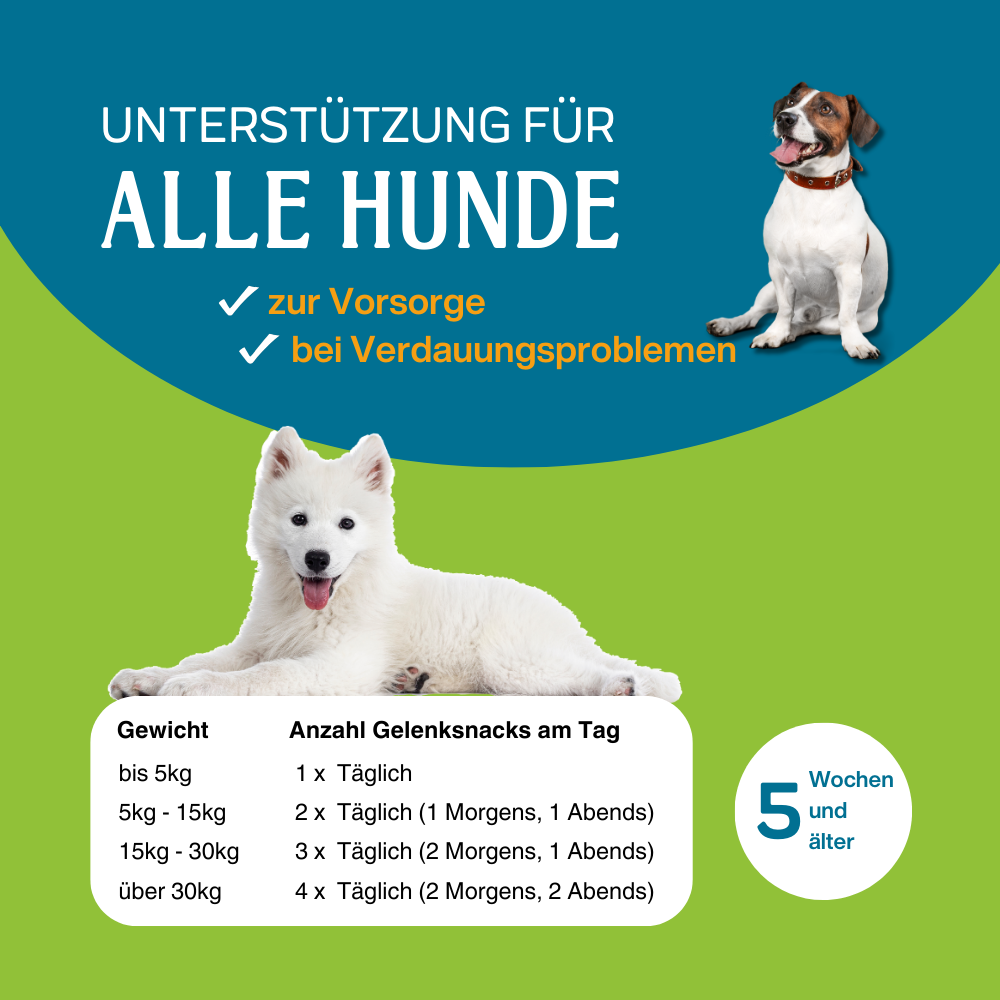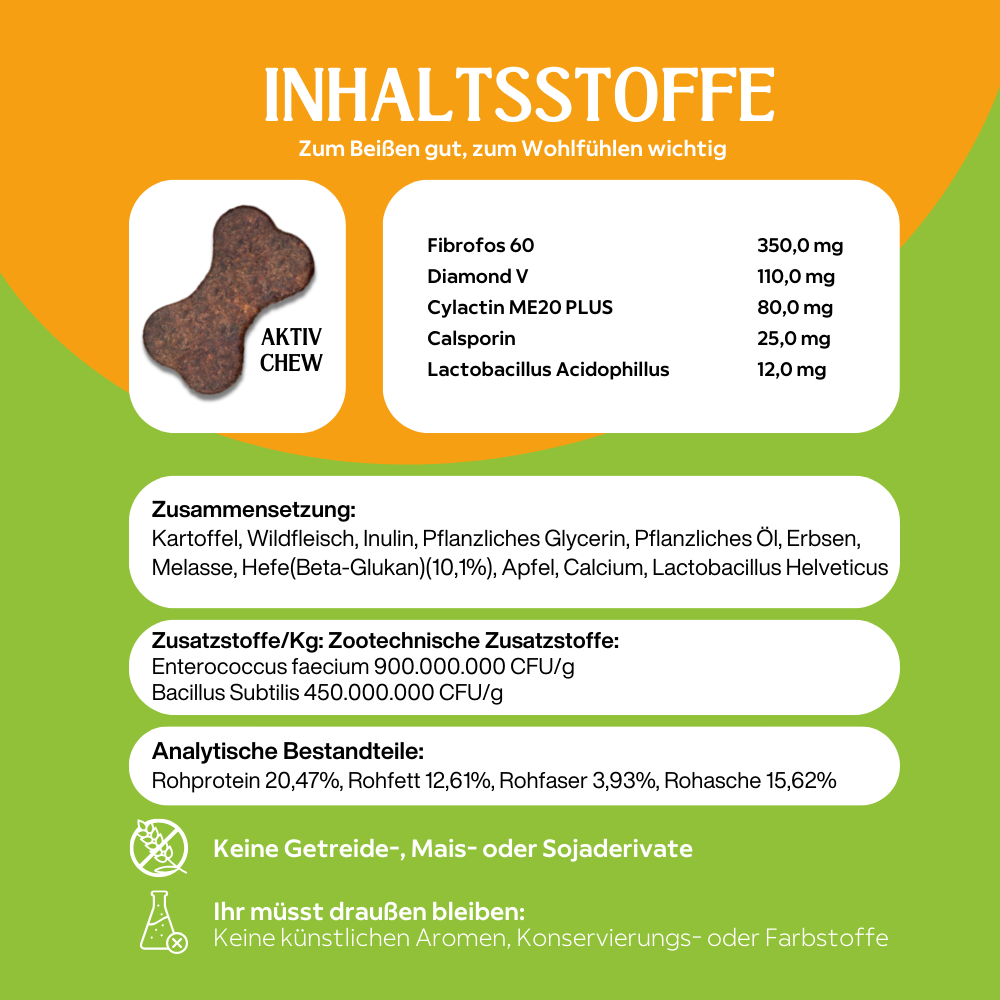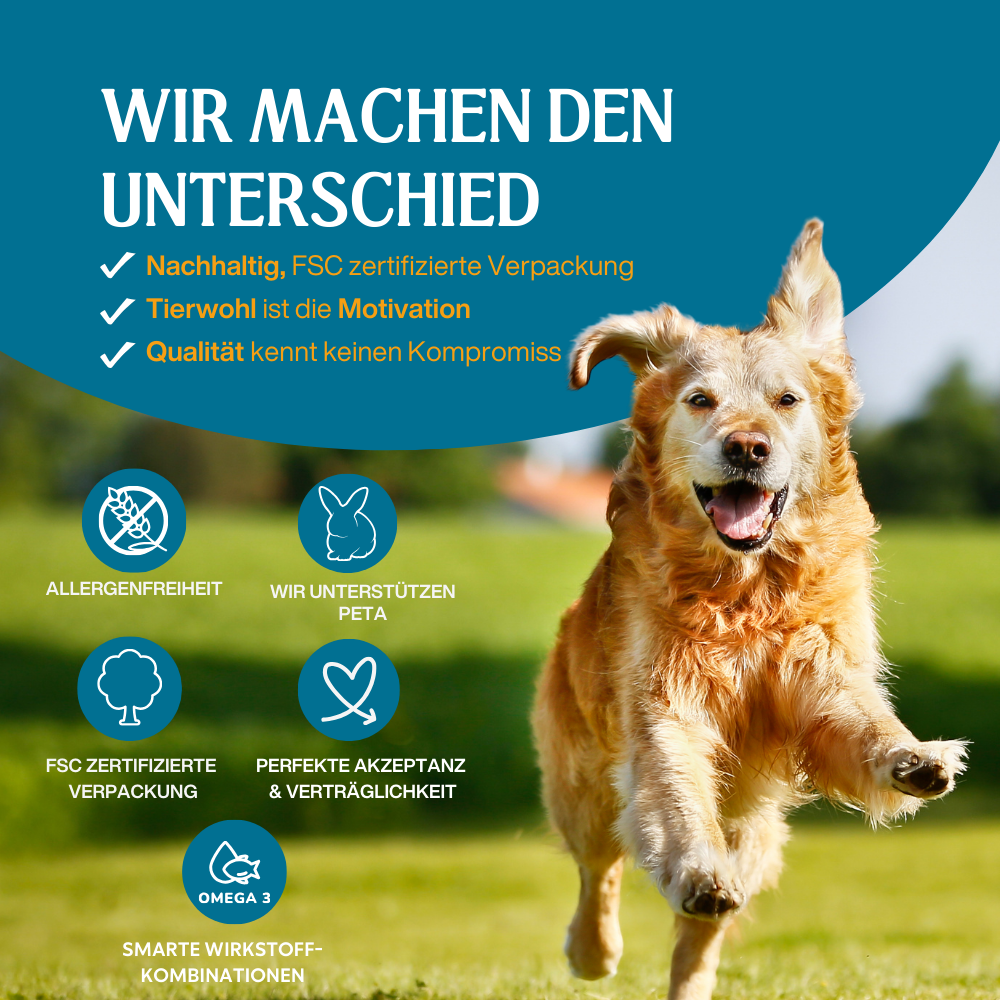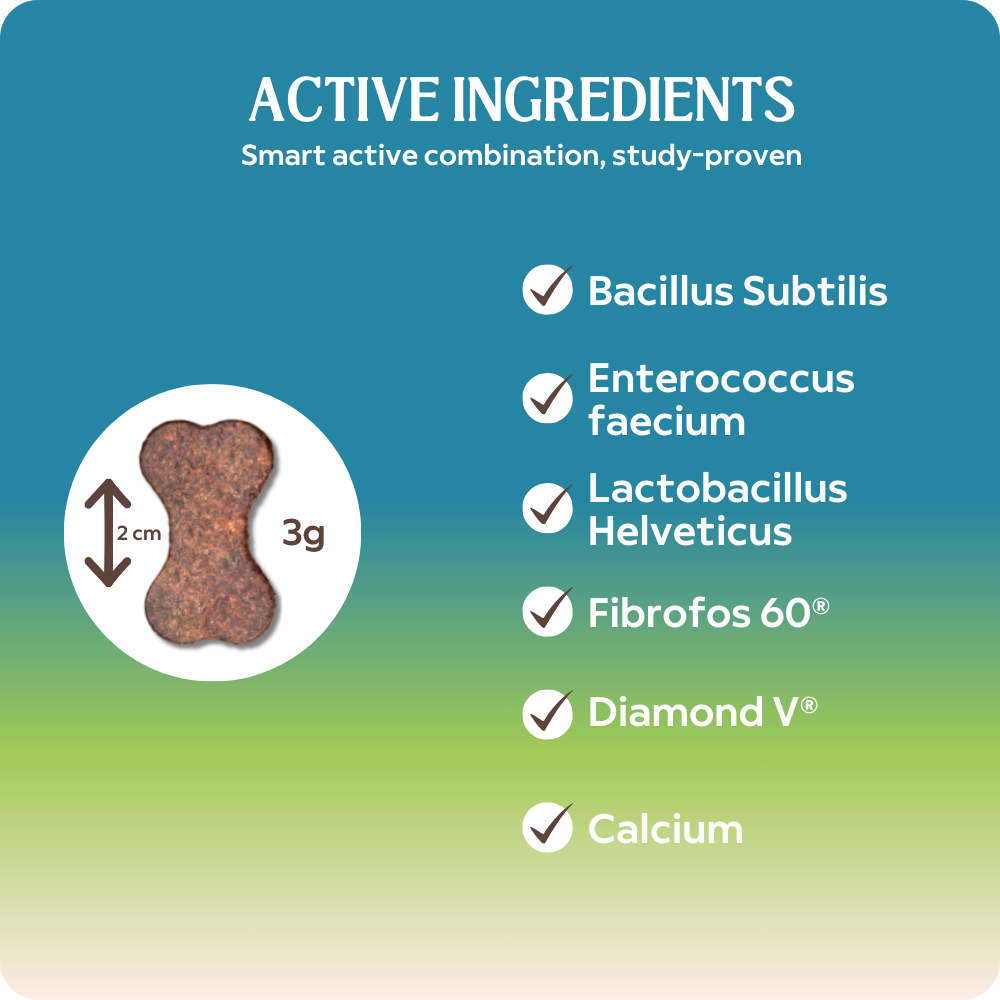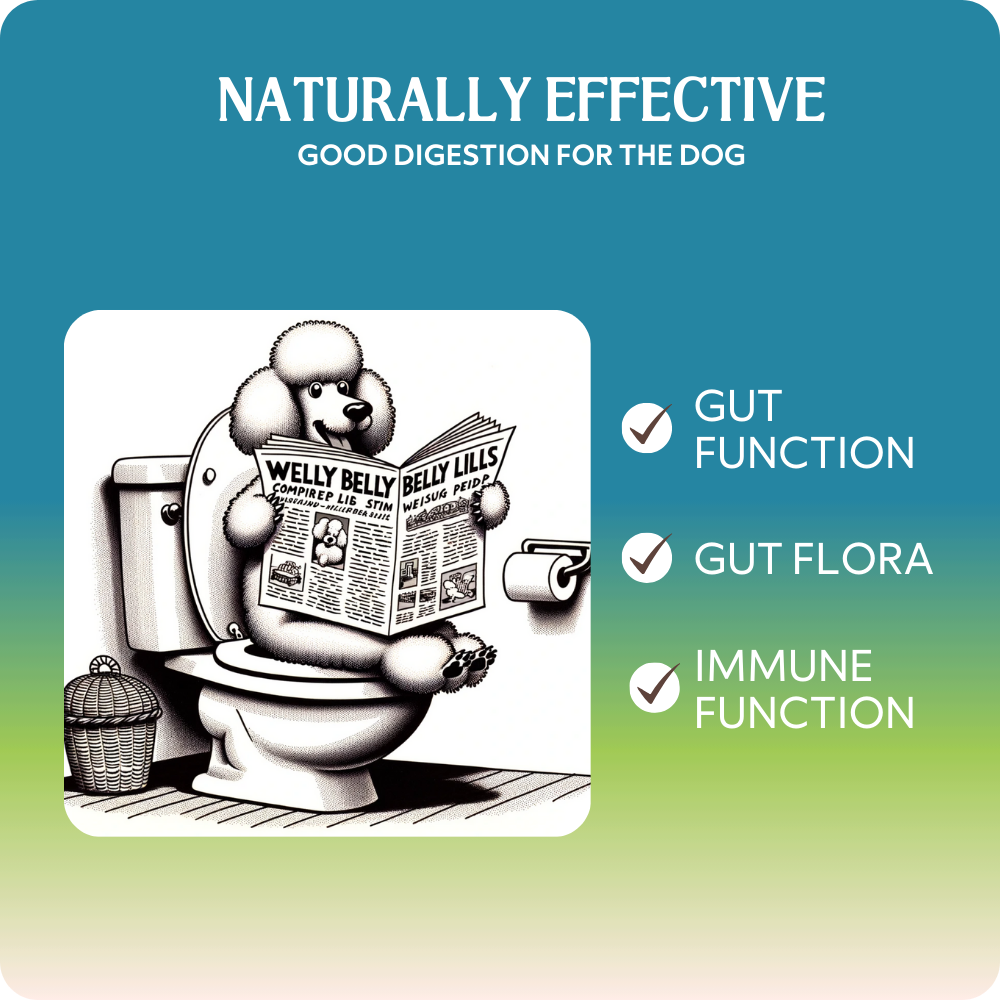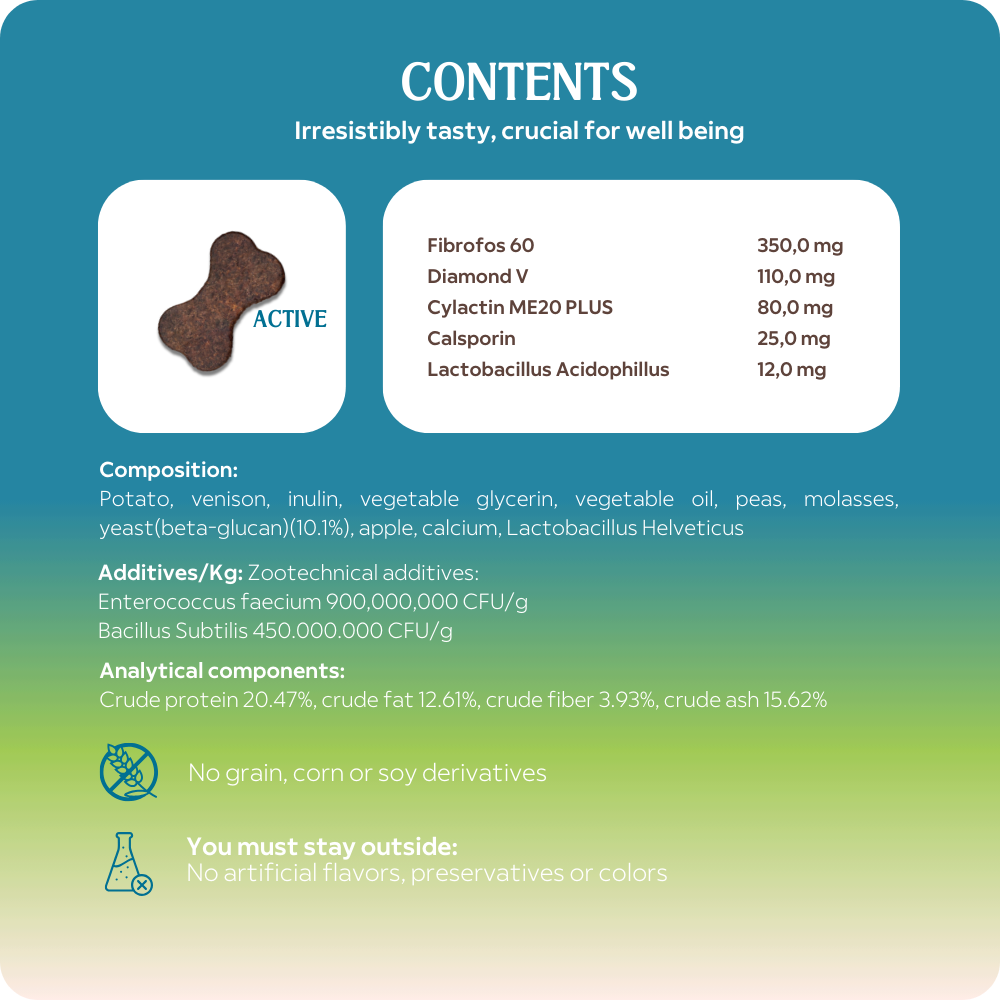Flatulence in your dog can be an unpleasant experience for both him and you. Aside from the obvious olfactory challenges they pose, bloating can also indicate deeper health issues. But how can you help your four-legged friend and what are the possible causes? Let's take a closer look at this sensitive issue and find solutions together.
Flatulence in Dogs: A Silent (or Loud) SOS?
Flatulence occurs when gas builds up in the digestive tract and then needs to escape in some way. This may involve normal physiological phenomena, but recurring or particularly smelly flatulence could also indicate a problem with digestion, nutrition, or even a more serious health matter.
Possible causes:
- Feeding : Eating quickly, an inappropriate diet, or abrupt food changes
- Digestion : Digestive difficulties, enzymatic problems
- Health problems : Gastrointestinal diseases, parasites or bacterial imbalance
Act, but do it right: Practical tips for flatulence
-
Check feeding : Make sure that your dog eats calmly and without haste. Feeding stations that prevent gobbling can be useful here.
-
Adjusting your diet : Sometimes adjusting your diet, such as switching to an easily digestible food or reducing gas-forming ingredients, can help.
-
Regular exercise : Exercise promotes digestion and can therefore also help reduce bloating.
-
Small, frequent meals : Several smaller meals a day can reduce strain on the digestive tract.
-
Veterinarian consultation : If problems persist, a veterinarian should be consulted to rule out more serious causes and develop an appropriate solution strategy.
Weight and bloating: The unmistakable connection
Obesity in dogs can increase the risk of a variety of health problems, including digestive problems. Too much weight puts strain on the joints, the cardiovascular system and can also affect digestive function. Some quick and easy measures if you are overweight are:
-
Controlled nutrition : Food in appropriate quantities that is tailored to your dog's energy needs.
-
Exercise : Regular, tailored exercise helps burn calories while strengthening your metabolism.
-
No extras : Avoid extras between meals and choose low-calorie rewards.
-
Regular weighing : Monitor your dog's weight regularly to check the success of the measures.
-
Veterinary support : If you are very overweight, a weight loss program should always be coordinated with your veterinarian.
Conclusion: Reach your goal with patience and understanding
Flatulence can be uncomfortable, but it also offers the opportunity to improve your dog's health and well-being. With the right knowledge, an attentive eye and a pinch of humor, you and your dog can get the problem under control together and enjoy life to the fullest again.
